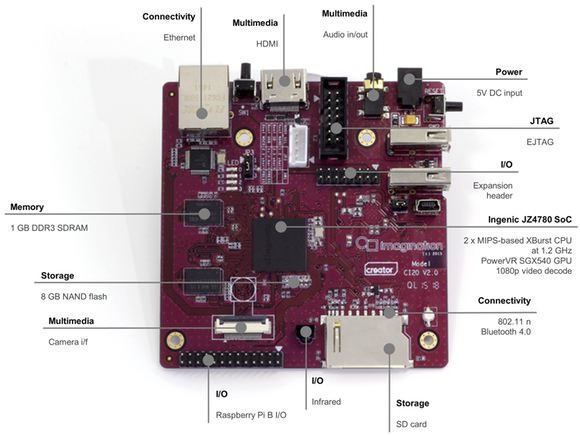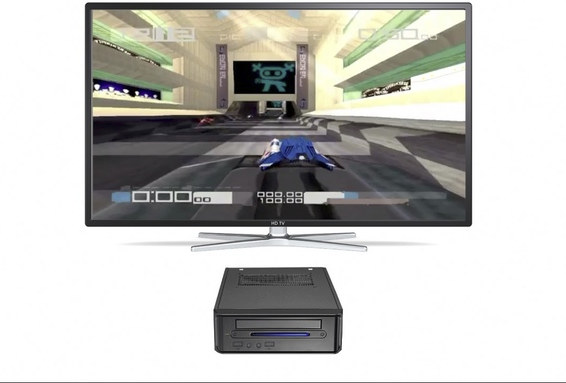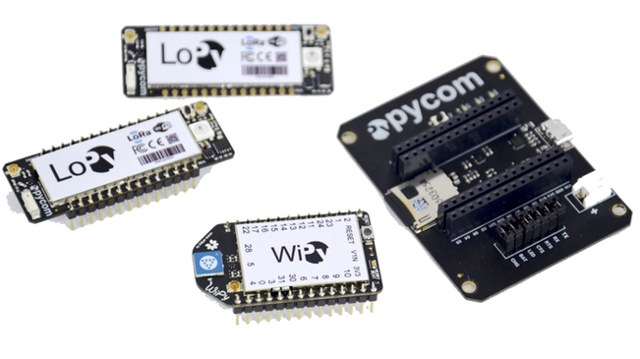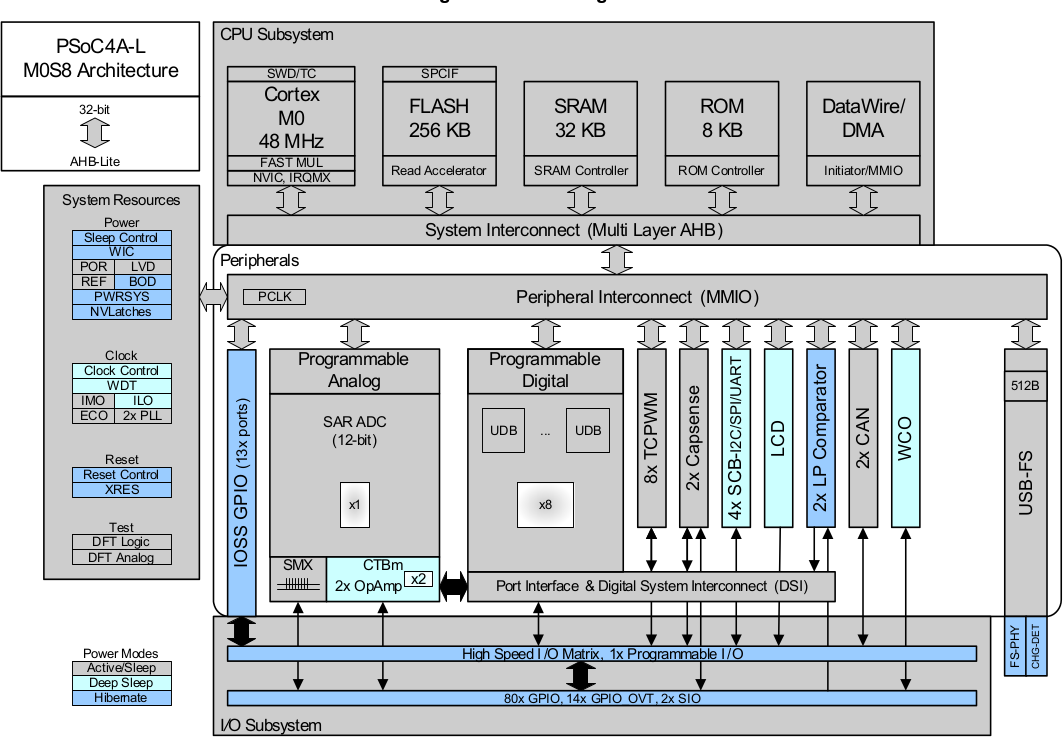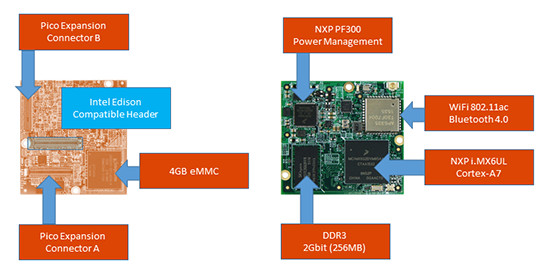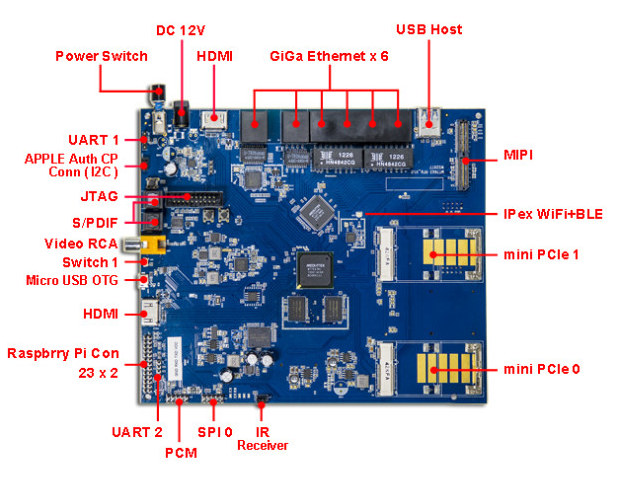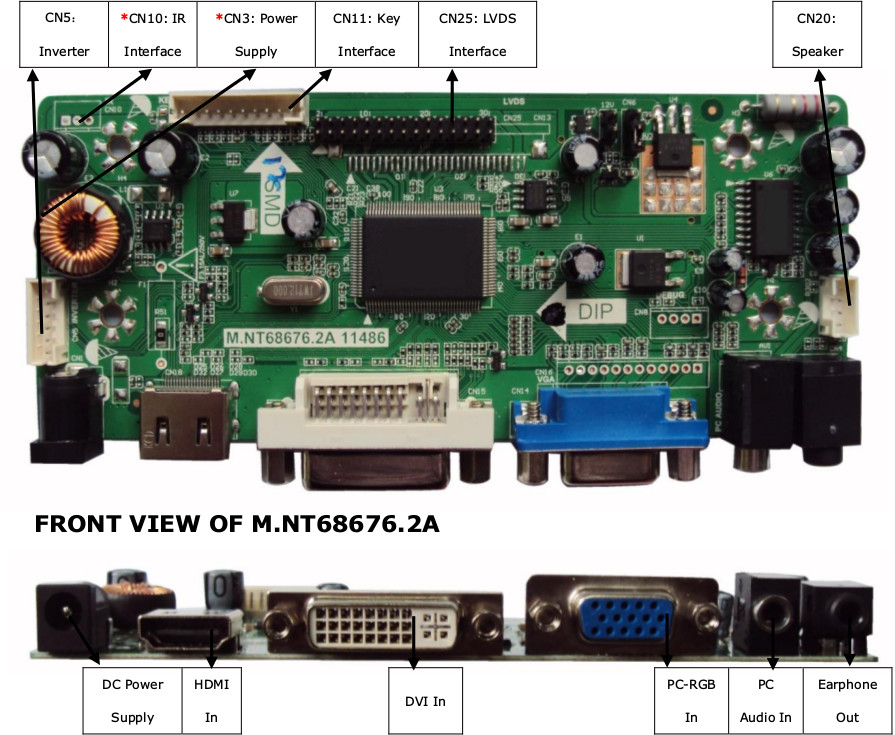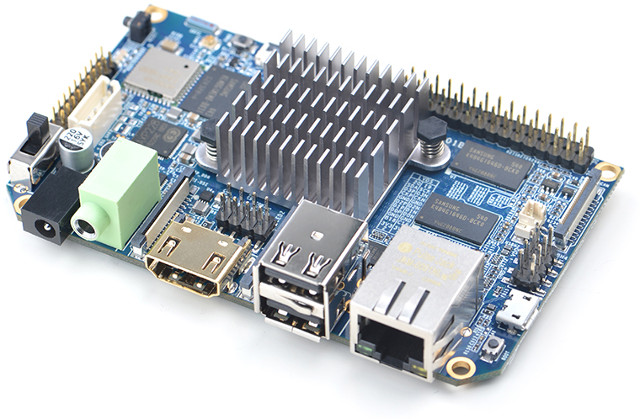I’ve noticed Hackster hardware community has helped organizing several challenges for makers, and the most two recent one are sponsored by Imagination Technologies with their Creator CI20 MIPS board, and SeeedStudio and Beagleboard.org with BeagleBone Green board. “Terminate the competition with Creator Ci20!” That’s the title for Imagination Technologies contest, who basically wants you to create our robot overloads using their MIPS board, or at least design a Terminator inspired robot or hack using the board. You’ll need to submit your idea by March 4, 2016, and the company will give 50 Creator Ci20 to the best 50 ideas, aftwer which you have until April 29, 2016 to complete your project, and write about it on Hackster with photos, code and schematics. Three winners will be selected by May 6, 2016 to get one of the three prizes: 1st place (worth $400) – A bag of Imagination-powered goodies, including a Meizu […]
Crowdfunded Projects Use Raspberry Pi and ODROID Boards into Home Theater PCs and Retro Game Consoles
I’ve been tipped about two separate projects launched on Indiegogo and Kickstarter that integrate Raspberry Pi or ODROID boards into their products. indieGO! retro gaming console and distribution leverages Raspberry Pi 2, ODROID-C1+, or ODROID-XU4 to play older games, while Pi2Media HT1 relies on either Raspberry Pi2, and later the upcoming UP Board or ODROID-C2 boards in order to offer a Surround 7.1 Home Theater PC. indieGO! Retro Game Console Beside the development board, indieGo! also includes a DVD-RW drive, an SD card reader, a mini-ITX case, a 3D-Printed I/O-shield and ARM board holder, a USB joypad, and two USB ports. indieGO!-OS is also a Linux distribution based on AEROS running Exagear which means both ARM (native) and x86 (emulation) executables will run on the device. Pre-isntalled programs include Wine, Kodi, Moonlight, AmiCloud, and EmuLA. The many emulators installed allow support for games running Playstation, C64, Dreamcast, Game Boy, Atari, Sega, PC, […]
LoPy Tiny IoT Developer Board Runs MicroPython, Supports LoRa, WiFi and Bluetooth (Crowdfunding)
Pycom launched WiPy last year, a WiFi IoT board based on Texas Instruments CC3200 ARM Cortex M4 SoC, and a few months after sending rewards to their Kickstarter backers, they are back on the crowdfunding platform to launch LoPy, another IoT development board that runs MicroPython and offers LoRa, WiFi and Bluetooth LE connectivity. LoPy board hardware specifications: SoC – Dual processor @ 160 MHz with WiFi & BLE radio with 400 kB RAM, 1MB flash External Storage – 4MB flash Connectivity 802. 11b/g/n @ 16Mbps with WEP, WPA/WPA2 WiFi security; SSL/TLS support; AES encryption engine. Bluetooth Classic and Low Energy LoRaWAN Semtech LoRa transceiver SX1272 @ 868 MHz (Europe) or 915 MHz (North America). Range – Node: Up to 40km; Nano-Gateway: Up to 5 km Nano Gateway Capacity – Up to 100 nodes. Internal chip antenna and u.fl connectors for external antennas Headers – 2x 14-pin headers for: Up […]
Cypress Introduces PSoC 4 L-Series ARM Cortex-M0 MCU and Development Kit
Cypress Semiconductor has recently unveiled PSoC 4 L-Series micro-controller family based on ARM Cortex M0 core with more programmable analog and digital blocks, expanded memory, new peripherals and higher number of I/Os, as well as the corresponding Arduino compatible CY8CKIT-046 PSoC 4 L-Series Pioneer Kit to evaluate their latest solution. Key features of PSoC 4 L-Series MCU ARM Cortex-M0 CPU @ 48-MHz with DMA controller, up to 256KB flash, up to 32KB SRAM and up to 98 GPIOs CapSense with SmartSense auto-tunning – 2x Cypress Capacitive Sigma-Delta (CSD) blocks Programmable analog 4x configurable opamps 4x current DACs (IDACs) 2x low-power comparators (CMP) One 12-bit, 1-Msps SAR ADC Programmable digital 8x Universal Digital Blocks (UDBs) 8x configurable 16-bit TCPWM 4x independent serial communication blocks (SCBs) Full-Speed USB 2.0 controller 2x CAN Controllers Segment LCD Drive support up to a maximum of 64 output (commons or segments) Power 1.71 to 5.5 V […]
Wandboard Introduces $69 Hobbitboard Made for Brillo Powered by NXP i.MX6 UltraLite Processor
Wandboard was one of the first to launch boards based on Freescale i.MX6 Solo, Dual and Quad in early 2013. The boards are comprise of an EDM system-on-module and a carrierboard, that makes it not only suitable as a single board computer, but you could also use the boards to start developing software, while making your own carrierboard to match your application. Wandboard.org community sent me an email last night to let me know about their latest board called Hobbitboard, or in full “Hobbitboard Made for Brillo”, powered by NXP i.MX6 UltraLite Cortex A7 processor, which follows the same principle, and includes Hobbit Compute Module and Hobbit I/O Carrierboard. Hobbit Compute Module specifications: SoC – NXP i.MX6 UltraLite Cortex A7 processor @ 528 MHz System Memory – 256MB DDR3 Storage – 4GB eMMC flash Connectivity – 802.11ac WiFi and Bluetooth 4.0 (Ampak AP6335) Board Connectors – Two Pico Expansion header […]
$98 Geek Force Mediatek MT7623 Router Board Features 6 GbE Ports, 3 mPCIe Slots for WiFi, 3G, or LTE (Crowdfunding)
We’ve seen a few interesting and relatively powerful router board launched last year, with the likes of MQMaker WiTi or Turris Omnia, AsiaRF has now designed Geek Force board powered by Mediatek MT7623N/MT7623A quad core network processor combined with 2GB RAM, six Gigabit Ethernet ports, and optional 802.11ac and 3G connectivity via the three mPCIe slots available on the board. The board also features two HDMI ports, and supports multimedia capabilities such as H.264, MPEG-2, or VC-1 hardware video decoding. Geek Force board preliminary specifications: SoC – MediaTek MT7623A or MT7623N quad-core ARM Cotex-A7 @ 1.3GHz with Mali-450MP GPU (MT7623N only) System Memory – 2GB DDR3 Storage – 2GB eMMC or NAND Flash + SD card slot up to 128 GB, and maybe SATA via the mPCIe slots Connectivity – 6 Gigabit Ethernet ports (WAN / LAN behavior defined by firmware), 802.11 b/g/n WiFi & Bluetooth 4.0 via MT6625L with […]
How to Use Your Old Laptop Screen with Raspberry Pi or Your Computer
After reading an article on Liliputing about using Raspberry Pi Zero with Motorola Lapdock, I decided to look for clones for the device since Motorola Lapdock is now hard to buy at a decent price, if at all, since the product has been discontinued for a while. I did not find anything similar, but instead I came across M.NT68676.2A LCD driver HDMI kit selling for $37.99 on eBay that allows you to re-use your old laptop screen with any development board or computer that comes with HDMI, DVI, or VGA output. The kit is comprised of a monitor control board (M.NT68676.2A), an “inverter” board which depends on your LCD panel model number, a keypad board, an LVDS cable, and a cable to connect all three boards together. M.NT68676.2A monitor control board specifications: Chipset – NT68676 (UFG) Supported Panel – LED/LCD, Single/Dual LVDS (8bit) up to 2048×1152 resolution Video Input “PC-RGB […]
FriendlyARM NanoPC-T2 Board Gets More Storage, WiFi & Bluetooth, Stays Cool, and Costs Less
FriendlyARM NanoPC-T1 board powered by Samsung Exynos 4412 processor with 1GB RAM and 4GB eMMC flash was unveiled at the start of 2014 for $69. The company has now announced NanoPC-T2 with Samsung S5P4418 processor with 1GB RAM, and 8GB Flash, as well as WiFi and Bluetooth, as Gigabit Ethernet all of which were missing in the first version. NanoPC-T2 also has a power management chip, and a larger heatsink, meaning that it does not suffer from overheating like NanoPi2 according to FriendlyARM. NanoPC-T2 specifications: SoC – Samsung S5P4418 quad core Cortex A9 processor @ up to 1.4GHz with Mali-400MP GPU System Memory – 1GB 32bit DDR3 RAM Storage – 8GB eMMC flash, and 1x SD card slot (on the bottom of the board) Connectivity – Gigabit Ethernet, 802.11 b/g/n WiFi and Bluetooth LE 4.0 (Ampak AP6212) with on-board chip antenna and 1x IPX antenna connector Video Output / Display […]


